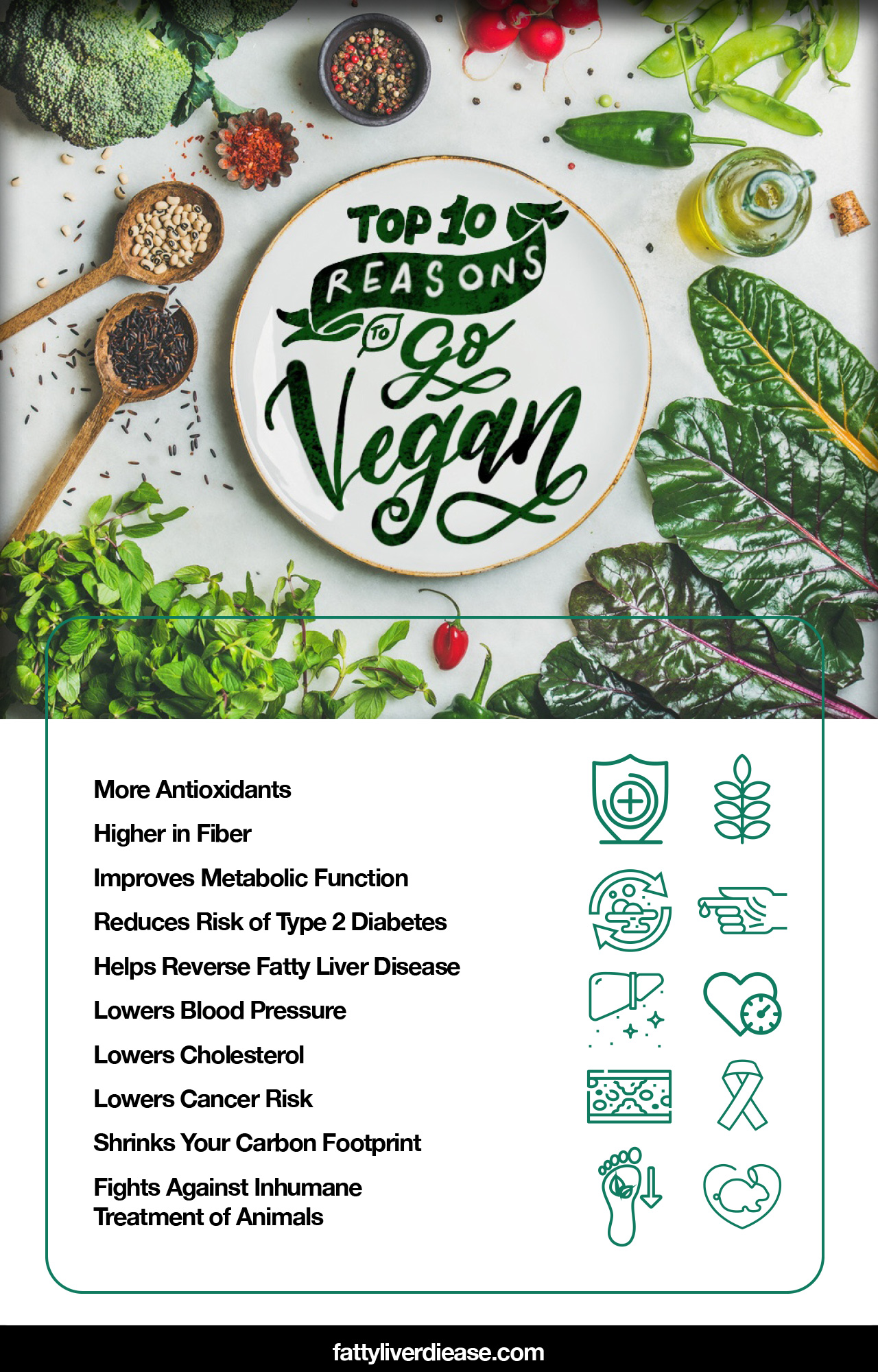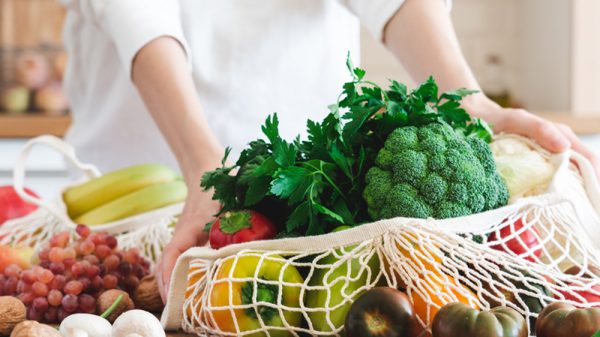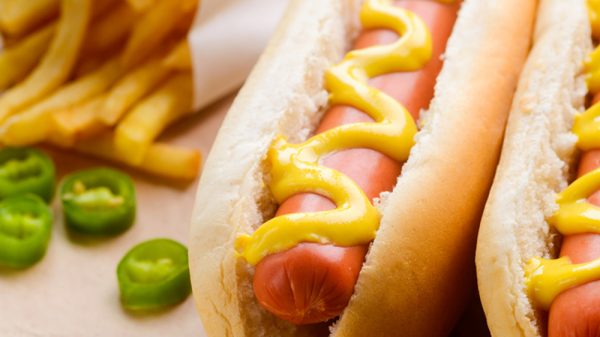Veganism has been trending across the United States for several years, with increases in the sales of plant-based food items and more people adopting the vegan diet. But is veganism all it’s hyped up to be? We think there are so many reasons to go vegan.
Are you thinking about going vegan? If so, you are probably wondering about what it means to go vegan and the benefits of veganism. If you’re on the fence, it’s helpful to get the facts about veganism so you can decide whether it works for you. Here we give you the top 10 reasons to go vegan.
The Lowdown on Veganism
What is veganism anyway? Veganism is a diet and lifestyle that is growing in popularity in the United States. Following a vegan diet means that you avoid animal products in the foods that you eat. Vegans avoid meat and dairy products like chicken, beef, fish, yogurt, cheese, ice cream, and milk. A vegan diet is based on plants, like whole grains, fruits, veggies, nuts, and seeds. The healthiest vegan diet is one that focuses primarily on whole foods and balances protein, healthy fats, and complex carbs.
Some vegans also extend vegan practices to their everyday life in other ways. A vegan lifestyle means avoiding purchasing or using items that use animal products or animal testing.
When did veganism start? Veganism has likely been around for as long as humans have been around, for several reasons. When access to meat and dairy is sparse, individuals may have to rely on plant-based food items. Religious reasons, moral beliefs, health reasons, and personal tastes are other reasons individuals decide to go vegan.
When considering vegetarian vs vegan, which is healthier? Vegetarians include eggs and dairy in their diet. Generally speaking, though both vegetarian and vegan diets are healthy, a vegetarian diet may be a little less healthy due to the potentially higher consumption of saturated fat from eggs and dairy.
Why Go Vegan? Top 10 Reasons to Go Vegan
Without further ado, here are the top 10 reasons to go vegan.
1. More Antioxidants
Vegan meals and vegan recipes are usually high in fruits, vegetables, nuts, seeds, and whole grains that naturally increases your intake of antioxidants. Antioxidants are tiny compounds that help neutralize free radicals in the body. Free radicals accumulate and damage healthy tissues, causing a state called oxidative stress. Oxidative stress is connected to many diseases but can be reduced by eating a vegan diet.
2. Higher in Fiber
Eating a plant-based diet naturally increases your intake of both insoluble and soluble fiber. Eating plenty of fiber helps slow the absorption of glucose in the blood, preventing blood sugar spikes. High fiber content is why blood sugar levels remain stable after eating a piece of fruit or whole-grain bread.
Eating a fiber-rich diet also balances the microbiome of the gut. A high-fiber diet encourages the growth of good bacteria in the gut that produce anti-inflammatory byproducts. Eating plenty of fiber also protects against
3. Improves Metabolic Function
A vegan diet based on whole foods is low in added sugars and saturated fat and high in fiber, antioxidants, vitamins, and minerals. As a result, a plant-based diet helps lower inflammation in the body, subsequently supporting mitochondria and cellular processes as they convert food into energy.
4. Reduces Risk of Type 2 Diabetes
Type 2 diabetes is a metabolic condition that arises from insulin resistance. Insulin is a hormone secreted by the pancreas in response to high blood sugar levels. The release of insulin communicates to cells and tissues that they should utilize glucose from the bloodstream for energy.
However, chronically elevated blood sugar levels and a diet high in saturated fat impede the normal production and function of insulin. Insulin resistance means that your body cannot keep up with the demands to handle blood sugar, leading to type 2 diabetes.
Eating a diet high in antioxidants and fiber and low in added sugar and saturated fat encourages the healthy function of insulin and reduces the risk of developing type 2 diabetes.
5. Helps Reverse Fatty Liver Disease
Fatty liver disease is an outcome of metabolic syndrome, as expressed in the liver. Individuals with fatty liver disease accumulate fat cells in the liver. Nonalcoholic fatty liver disease is connected to metabolic dysfunction and obesity. Without intervention, fatty liver disease can progress to steatohepatitis, fibrosis, and cirrhosis.
However, when caught early, fatty liver disease can be successfully reversed with diet and lifestyle changes. Eating a vegan diet that includes mainly whole foods is an excellent tool for achieving a healthy weight, supporting healthy metabolic function, and reversing fatty liver disease.
6. Lowers Blood Pressure
Simply eating lots of anti-inflammatory foods helps manage blood pressure levels. Plus, eating a diet rich in vegetables has positive outcomes for blood pressure levels. Many vegetables are rich in natural nitrates, which are compounds that improve the function of the endothelium within blood vessels. The endothelium is a layer of muscle cells inside blood vessels that help control constriction and dilation.
Eating a diet rich in natural nitrates encourages vasodilation and improved blood flow, subsequently helping to lower blood pressure. To harness the blood-pressure-lowering effects of natural nitrates, enjoy veggies like beets, arugula, lettuce, and kale.
High blood pressure is an ailment affecting a significant proportion of the American population and, over time, increases the risk of heart disease. Intervening early can help reduce your risk of cardiovascular disease down the road.
7. Lowers Cholesterol
A diet rich in fiber, low in saturated fat, and high in healthy fats helps balance cholesterol levels. High saturated fat and trans fat intake from meat, dairy, and processed foods can increase your levels of low-density lipoprotein (LDL) cholesterol. Removing meat and dairy from your diet help lower LDL cholesterol levels.
Replace unhealthy saturated and trans fats with healthy monounsaturated and polyunsaturated fats that can be found in foods like walnuts, chia seeds, flaxseeds, cashews, and avocado.
8. Lowers Cancer Risk
Eating a balanced vegan diet may help lower your cancer risk. Eating a vegan diet naturally increases your intake of antioxidants, which are vital in supporting cellular processes in DNA repair and other cancer-preventing mechanisms. Eating a diet high in antioxidants and anti-inflammatory agents improves the functions of these cellular mechanisms that help correct deformed cells and prevent them from forming cancerous masses.
9. Shrinks Your Carbon Footprint
Beyond the numerous reasons to eat vegan for your health, eating vegan is also good for the environment. Each of us has a carbon footprint, which describes the amount of greenhouse emissions we contribute to. Greenhouse gases include gases like carbon dioxide and methane and are measured in terms of carbon output. These emissions harm the environment by collecting in the atmosphere and insulating the earth, causing global warming and climate change.
Using products that require lots of resources like energy, land, and transportation increases our carbon footprint. In this way, our food choices have a direct impact on our environment, and vegans have a smaller carbon footprint than meat-eaters. The processes required to support the meat industry like deforestation, preparing land for farm animals, feeding animals, and animal waste contribute to greenhouse gas emissions. Eating chicken and red meat significantly increases your carbon footprint. Eating a vegetarian or vegan diet is a simple way to shrink your carbon footprint and live more sustainably.
To make your carbon footprint as small as possible when eating vegan, choose local produce whenever possible. Produce that must be transported creates a larger carbon footprint from being flown or driven to your supermarket.
10. Fights Against Inhumane Treatment of Animals
By choosing to go vegan, you are fighting against animal cruelty, factory farming, and animal agriculture that treat animals as commodities. Many animals like beef and dairy cows are confined to tiny, filthy cages with no quality of life, only to be taken to the slaughterhouse to be turned into products for human consumption.
Choosing plant foods is a good way to demonstrate your support of animal rights and animal welfare while showing your disapproval of meat industry and dairy industry practices.
Are There Reasons Not to Go Vegan?
If you’re looking for reasons not to go vegan, there aren’t many. When adopting a vegan diet, the one caveat is that consuming only vegan foods may make it a little more challenging to obtain certain nutrients in your diet. For example, the vegan diet tends to be more sparse in vitamin B12 and vitamin D, which are essential vitamins for neurological function and healthy immune system response. Calcium helps facilitate the absorption of vitamin D and may also be sparse on a vegan diet. However, omnivores often face difficulties getting these nutrients too, so it shouldn’t be a deterrent to going vegan.
Vegans should also make sure that they’re getting the essential amino acids that they need from dietary protein sources. Essential amino acids are vital for supporting the synthesis of muscle tissue, enzymes, and neurotransmitters. No vegetable protein source offers optimal ratios of essential amino acids, making it important to combine veggie proteins throughout the day. Strive to eat a variety of whole grains, beans and legumes, and nuts on a daily basis. Alternatively, incorporate a high-quality supplement into your diet.
Reasons to Go Vegan: Conclusion
So, why do people go vegan? Veganism is a method of healthy eating that has numerous benefits for both your health and the environment. Going vegan is better for your body in every way. Eating a plant-based diet helps facilitate weight loss and manage blood pressure, metabolic health, and digestive health. In addition to numerous health benefits, choosing to eat vegan also helps support the environment.
























